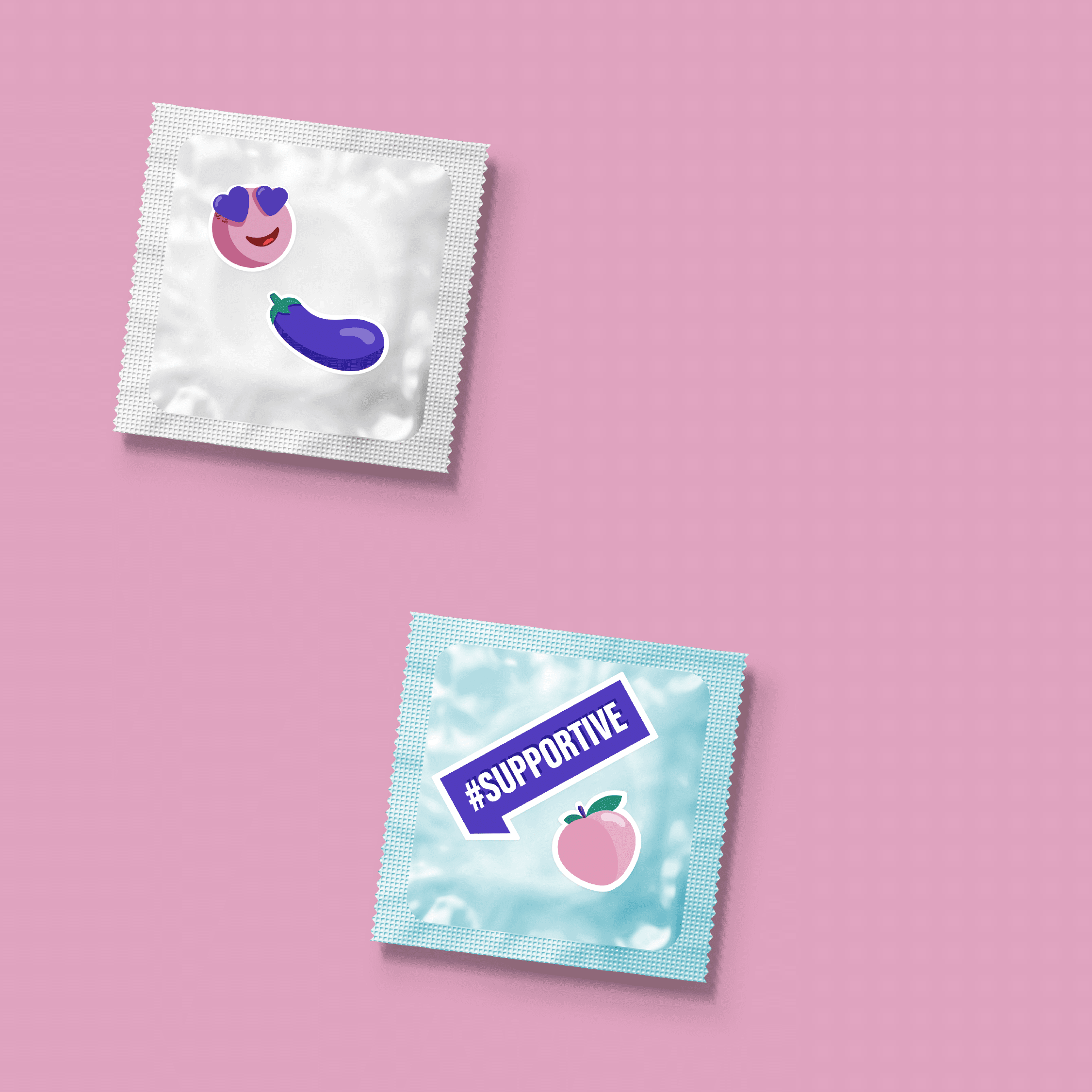Using condoms every time you have anal sex is very effective protection from HIV. In this programme we will tell you everything you need to know about condoms. They also protect you from many other sexually transmitted infections.
If you have condomless anal sex and take no precautions, you are at high risk of catching HIV. If you have HIV, it is important to know as soon as possible. There’s still time for you to reduce the harm to your body.
https://youtu.be/ErNVmI6zRy0
How would I know if I picked up HIV?
There is no way you can know for certain whether you have picked up HIV unless you take a test. If you’re having anal sex without protection we recommend you test at least every 3 months. This means that if you do pick up HIV, you’ll know about it before the virus has had time to do very much harm to your immune system. It also means you can take steps to avoid passing it on.
Some people do become unwell just after picking up HIV. They might have:
a high temperature/fever,
a rash over their body, or
swelling of the lymph glands in the neck, armpits and groin.
It would come on around 3-4 weeks after getting infected with HIV and can last for a few weeks. We call that a seroconversion illness.
If you think you might have a seroconversion illness, it’s best to avoid having sex. During a seroconversion illness the amount of virus in the blood becomes extremely high and makes it very easy to transmit HIV. You should also arrange to see us to talk about your symptoms and take a HIV test as soon as possible.
Vaccines
Have you been vaccinated against Hepatitis A and B?
Hepatitis A is virus which can be picked up through oral sex and rimming, and hepatitis B is passed on in similar ways to HIV (from blood or anal/vaginal sex). Both can cause liver damage. There are vaccines that protect against both and you can have a blood test to check whether you’re immune already if you’re not sure.
There is no vaccine against hepatitis C.
Why not PrEP?
If you don’t want to use condoms should you reconsider PrEP? Is there are reason why you don’t want to use it?
Perhaps you feel you need to know more about it? This guide goes through everything you need to know.
Perhaps you’re worried about side effects? Most people who take PrEP won’t actually experience any side effects at all, and for the minority that do they usually settle after a short time of getting used to the medicine. For those who have persistent problems we have a specialist clinic where we can explore the issues in more detail.
Perhaps you don’t have condomless sex very often and don’t see the point of taking a medicine every day. In that case, taking intermittent “event-based” prep might be right for you. More about that here.
Reduce your risk of catching HIV during condomless anal sex
- There are several ways you can reduce your HIV risk during condomless sex.
- Withdrawing before ejaculating (cumming)
- Being the insertive rather than receptive partner (You being top)
- Limiting the number of partners during group sex.
- Using lots of lube
- The longer it goes on, the higher the risk
PEP can be started up to 72hrs after sex
PEP is a treatment taken for 28 days after an HIV risk. It should be started as soon as possible. There’s no benefit after 72 hours. We will see you urgently at 56 Dean Street if you think you might need PEP, and A&E departments are able to start PEP when the clinic is closed. Evidence suggests PEP may reduce the chances of HIV infection by approximately 80%.
If you think you’ve been at risk, check this link to see if we recommend you start.
More fun, less chance of HIV
Anal sex without condoms is the kind of sex most likely to transmit HIV. So the more often that you have anal sex without condoms, the greater the chance of catching HIV. So why not try other kind of sex? Oral sex, hand jobs, rimming and water sports carry little, if any, risk of HIV. People often ask us how much HIV and STI risk comes from different types of sex – our friends at GMFA has produced this nice guide.
Explore your kink
People often push boundaries when they fantasize about great sex. Is there something that you regularly masturbate about that you’ve never tried in real life? Of course, maybe it’s something you’d rather keep in your imagination, but is it time to explore your secret kink? Exploring your fantasies can add a new dimension to your sex life. And lots of fantasies don’t carry any risk of catching HIV. Read some more advice on this here.
Are chems an issue?
Chems are psychoactive substances used to enhance sexual pleasure and reduce inhibitions. Many of those who use chems find them very manageable; for those who don’t we have lots of support available. Whether you just want to be better informed about chems or stop completely, you can find the help you need here.



